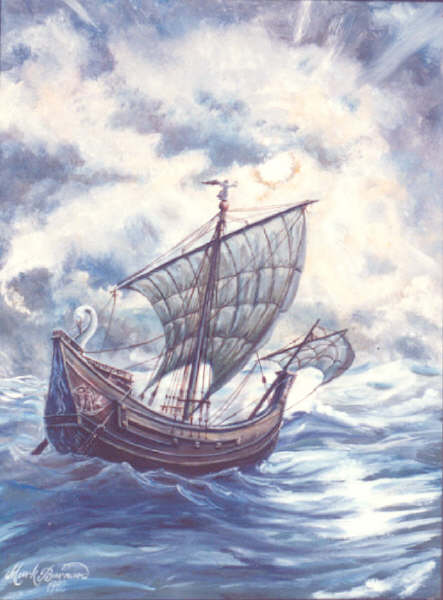Let Me...
Revise

Roman Bark, from Barnard Art
|
by William Shakespeare Let me not to the marriage of true minds Admit impediments. Love is not love Which alters when it alteration finds, Or bends with the remover to remove. O, no! it is an ever-fixed mark That looks on tempests and is never shaken; It is the star to every wand'ring bark, Whose worth's unknown, although his height be taken. Love's not Time's fool, though rosy lips and cheeks Within his bending sickle's compass come; Love alters not with his brief hours and weeks, But bears it out even to the edge of doom: If this be error and upon me proved, I never writ, nor no man ever loved. |
"Love Is Not Love Which Alters Not When It Alteration Finds" (Mind in Action) Insist on constancy. Love is love Which alters when it alteration finds, And bends with the mover to be moved. O, yes, it is a wandering bark, That rides on tempests, adjusts its course. It holds lightly, leaves no mark, Is unfastened, untethered, will not be forced. Love adapts, responds in kind, Attends with joy to twist and turn. Love does not fix the other mind, But learns to bend, and to discern. Fine attunement of the act, Love, changed by loving, learns to tack. By Anne Dalke |
|
Thanks to Mike Tratner, who saw "through" an earlier draft. tack, n. (from the OED):
And thanks to Karl Kirchwey,
who flagged the archaisms and suggested this contemporary connection to
"learns to bend": |
Return to A View from the Humanities
Return to "Alchemies of Mind": The Emotional Landscape of Nineteenth-Century Classical Texts